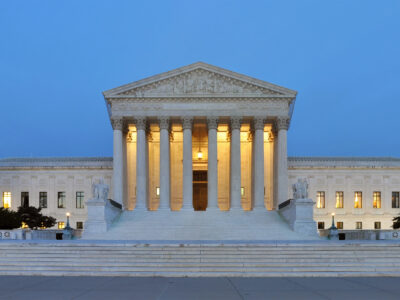Clean Water Restoration Act clears committee
The Senate Committee on Environment and Public Works has voted 12-7 to send the Clean Water Restoration Act, S 787, to the full chamber. The bill would reverse the limitations imposed on the scope of the Clean Water Act by the Supreme Court in Solid Waste Agency of Northern Cook County v. United States Army Corps of Engineers, 531 U.S. 159 (2001) (SWANCC), and clear up the confusion that has followed the Court’s latest dip in the CWA jurisdictional waters, Rapanos v. United States, 547 U.S. 715 (2006). (Sean posted here on the attempts of lower courts to interpret Rapanos.)
Before endorsing the bill, the Committee accepted an amendment put forth by Senators Max Baucus (D-MT), Barbara Boxer (D-CA), and Amy Klobuchar (D-MN), that slightly waters down the language of the bill as originally introduced by Russ Feingold (D-WI). Feingold’s version would have extended federal jurisdiction to the full extent of Congress’ constitutional powers. That’s how many had interpreted the Clean Water Act before SWANCC, including a unanimous Supreme Court in dicta in United States v. Riverside Bayview Homes, 474 U.S. 121 (1985). But it was never clearly established that Congress had intended to go that far, and some legislators objected that rather than restoring the pre-SWANCC law, the Feingold bill would expand it. The amended version (posted here by Great Lakes Law, which also has analysis here) would overturn SWANCC and Rapanos and “reaffirm” the scope of federal jurisdiction as the Clean Water Act was interpreted and applied prior to SWANCC.
That wouldn’t exactly make the scope of federal jurisdiction clear, but it may be the price of passage. At least the amended bill would still remove the unhelpful term “navigable waters,” which led Justice Rehnquist so far astray in SWANCC, out of the Clean Water Act. And even with the amendment, it is far from clear that this bill will become law. Senator Mike Crapo (R-ID), who voted against the revised bill, has already issued a press release saying that he has “placed a ‘hold’ on the bill, signaling his readiness to filibuster” it.







Reader Comments